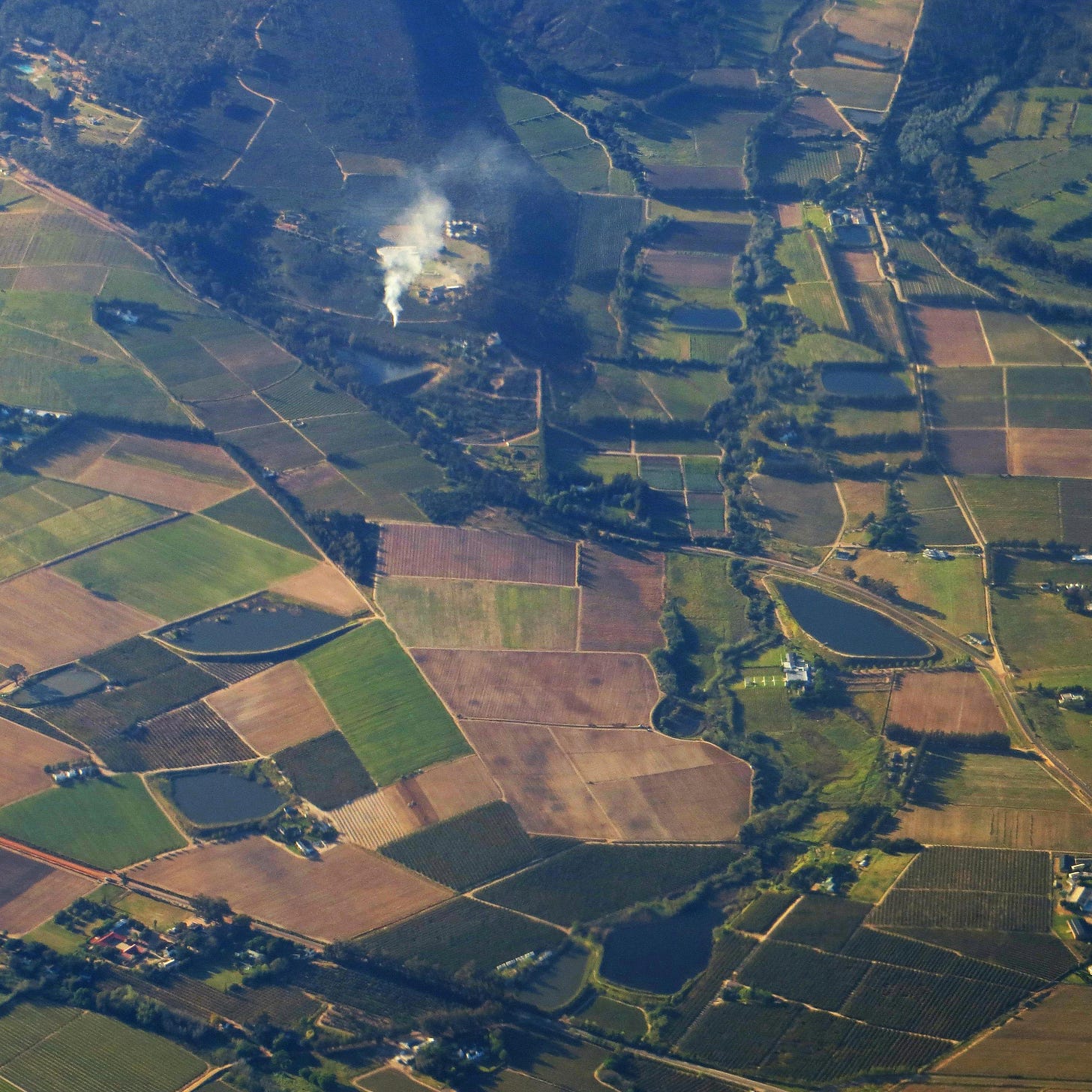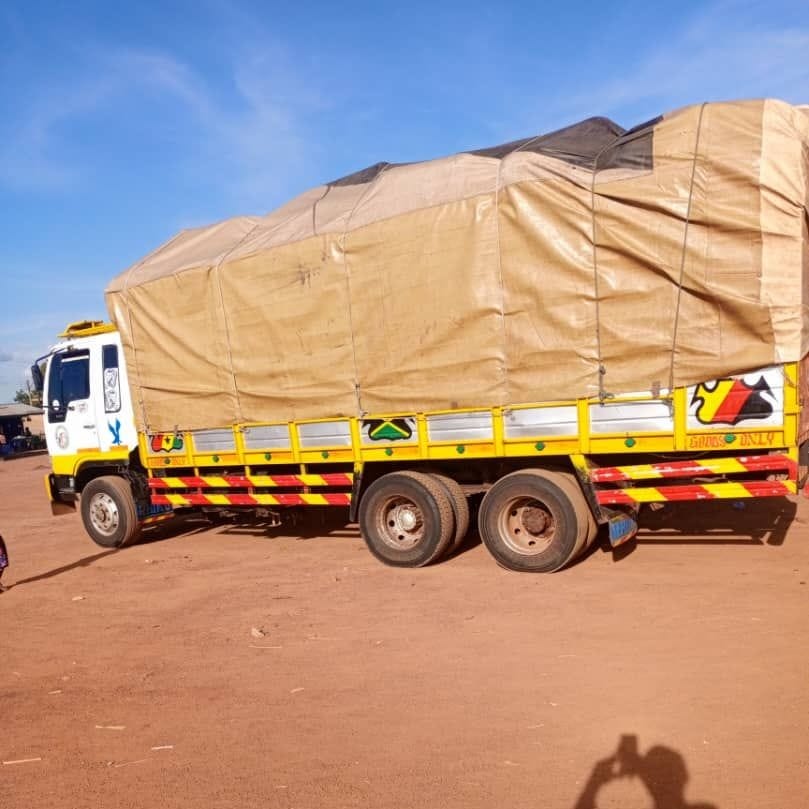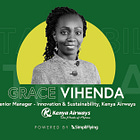How AfriSAF plans to convert Africa's crop waste into clean jet fuel
With 150 million tons of farm waste burned yearly, aviation veteran Kwame Bekoe is building a digital marketplace to tap into a $4.5B SAF opportunity.
Every harvest season, 150 million tons of agricultural residue go up in smoke across Africa. A new startup, AfriSAF, aims to transform this environmental liability into a $4.5 billion opportunity by converting agricultural waste into sustainable aviation fuel (SAF).
AfriSAF, which launched officially on April 2nd this year, is the brainchild of Kwame Bekoe, an aviation industry veteran with over 20 years of experience.
The company's premise is straightforward: create a digital marketplace that connects Africa's abundant agricultural waste resources with the rapidly growing global market for sustainable aviation fuel.
"About 60% of the population of Africa is made up of smallholder farmers. At the end of the harvest, it's typically just burnt off, which releases greenhouse gases into the atmosphere," explains Bekoe, who most recently served as Commercial Director at synthetic fuels company Zero® Petroleum.
Proven business model
AfriSAF's approach builds directly on Bekoe's successful agricultural venture Grow For Me. This is a crowdfunding platform that has connected investors with smallholder farmers across Ghana since 2018.
"It's an Uber for agriculture," says Bekoe. "People will pay, and a farmer will farm with that amount of money that has been paid."
Grow For Me has established itself as a prominent agri-tech platform in Ghana, enabling urban investors to fund rural farms growing in-demand crops like cassava, maize, and soybeans.
The platform secured SEC approval in Ghana (becoming the first licensed crowdfunding platform in the country) and has built a functioning marketplace, currently turning over around a million dollars annually.
Market opportunity
With global SAF demand projected to surge 400% by 2030, the timing appears opportune. The aviation industry faces mounting pressure to decarbonise, yet there are currently only about 33-34 SAF production plants globally, with plans for 160 and a target of 300 by 2030.
"For me, it's a disservice that the second world's largest landmass has nothing today except one plant in South Africa," Bekoe points out.
The fact that African agricultural waste currently has little commercial value gives AfriSAF a significant advantage and opens the door to very competitively priced SAF. "At the moment, that feedstock is going for next to nothing. It's just being burnt off," says Bekoe.
Importantly, AfriSAF says its approach aligns with EU Annex IX A/B standards under the Renewable Energy Directive, qualifying for RefuelEU SAF requirements – providing significant regulatory tailwinds for the venture.
Beyond transactions, the AfriSAF platform will generate ground-level data on African biomass supply, turning AfriSAF into not just a marketplace but an intelligence layer on top of Africa's emerging clean fuel economy.
"We are essentially giving smallholder farmers, commercial farmers, waste management companies the ability to showcase to a global audience what they have," Bekoe explains.

Regional expansion strategy
AfriSAF's growth plan begins in Ghana before expanding to six additional countries: Kenya, Ethiopia, Uganda, Tanzania, and South Africa. Each region offers unique agricultural waste streams.
Kenya particularly stands out for its SAF potential. According to Grace Vihenda, formerly Senior Manager of Innovation and Sustainability at Kenya Airways, her country's ideal weather conditions and extensive land resources make it well-suited for energy-producing crops like Castor and Jatropha, which thrive in Kenya's climate and can be used as bio-feedstocks for SAF production.
"With 90% of the country's electricity grid already powered by renewable energy, and an abundance of sunshine and wind power, Kenya is well-positioned to support the production of both bio-SAF and e-SAF," Vihenda noted on the Sustainability in the Air podcast.
AfriSAF has already signed a partnership with a green energy company in Uganda and is in discussions with a dairy collaborative of 57,000 farmers in Kenya. In South Africa, AfriSAF is exploring using invasive alien plants that threaten biodiversity as feedstock for SAF production.
Recent policy developments bolster this regional approach. "The African Continental Free Trade Area promotes cross-border goods, business, and people movement," notes Bekoe.
Future vision
While the immediate focus is on establishing the digital marketplace and feedstock aggregation, AfriSAF has longer-term ambitions.
"Once we can secure the feedstock and secure the offtake, we will bring on board the right technology based on the feedstock available," says Bekoe. "We'll work with local engineering companies to build a bankable consortium where we can secure equity financing and debt from banks or the IFC to fund production plants."
While initially concentrating on using agricultural waste in the Alcohol-to-Jet (ATJ) SAF pathway, AfriSAF sees potential in leveraging Africa's renewable energy resources for next-generation e-fuels and synthetic aviation fuels.
"If you take 2% of the land of the Sahara Desert and cover that with solar panels, you produce enough SAF to provide for the world," Bekoe says, illustrating the potential.
The company has identified several African regions with exceptional renewable energy potential. For example, Kenya is also exploring geothermal energy possibilities, which could eventually support e-SAF production, while Ethiopia's extensive hydropower resources remain largely untapped.
Meanwhile, Africa's deserts offer particular promise. For example, Namibia, home to the oldest desert in the world and a coast with wind energy opportunities, is implementing an aggressive green hydrogen strategy.
Looking ahead
Behind AfriSAF's ambitious business model lies a deeply personal mission for Bekoe.
"I have kids, and my kids ask questions about how the future is going to look," he says. "I speak to them about sustainability and what I'm doing in aviation. For me, that's not just a commitment to society, but a commitment to my kids."
With Africa's agricultural waste largely untapped and the aviation industry desperate for sustainable fuel feedstock, AfriSAF stands at the intersection of opportunity and necessity. If successful, it could transform environmental liabilities into economic assets while helping a difficult to decarbonise industry reduce its climate impact.
My thanks to Nat Wilson from Aviation Net Zero, for giving me the opportunity to sit in on an interview with Kwame and allowing me to ask some follow-up questions.






